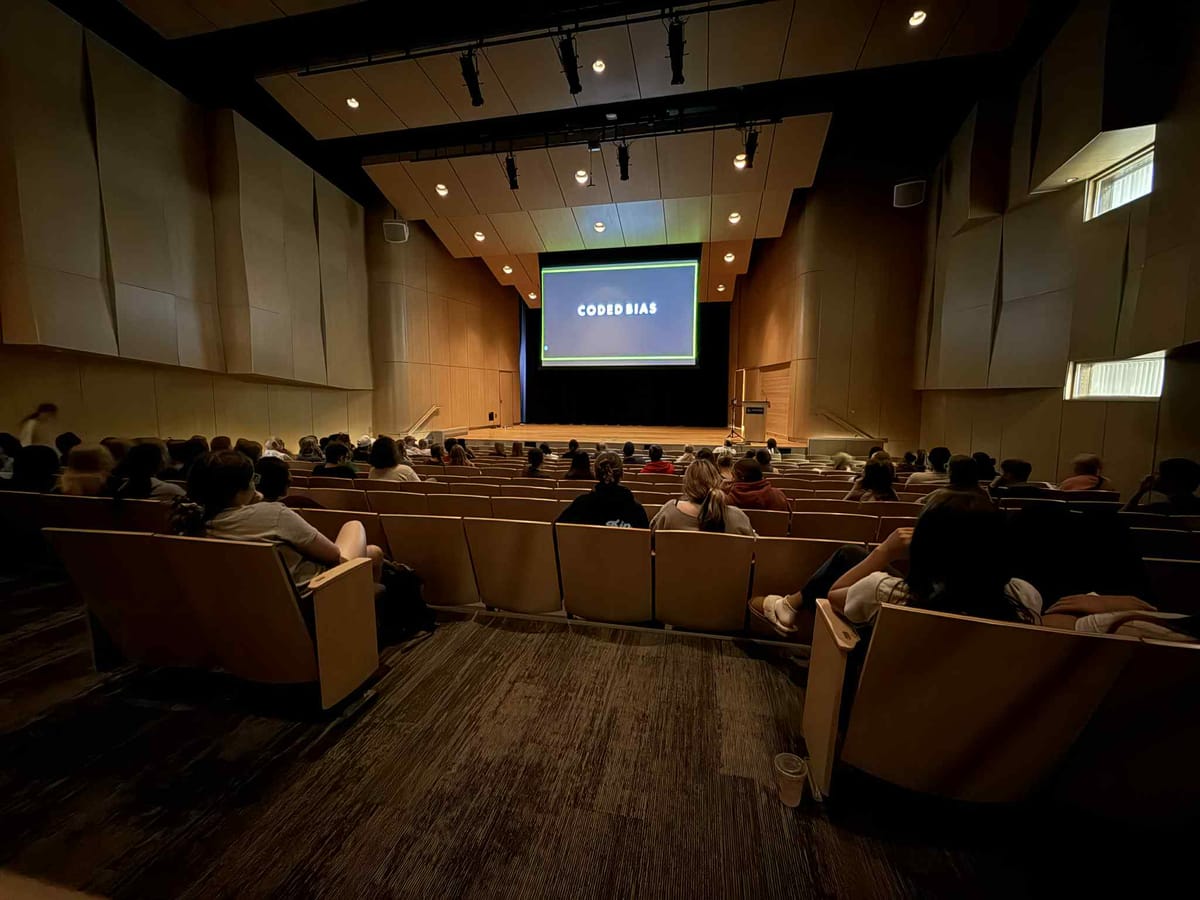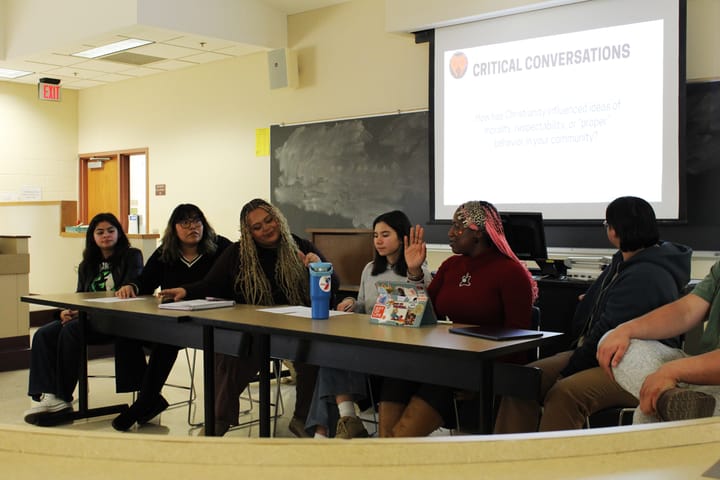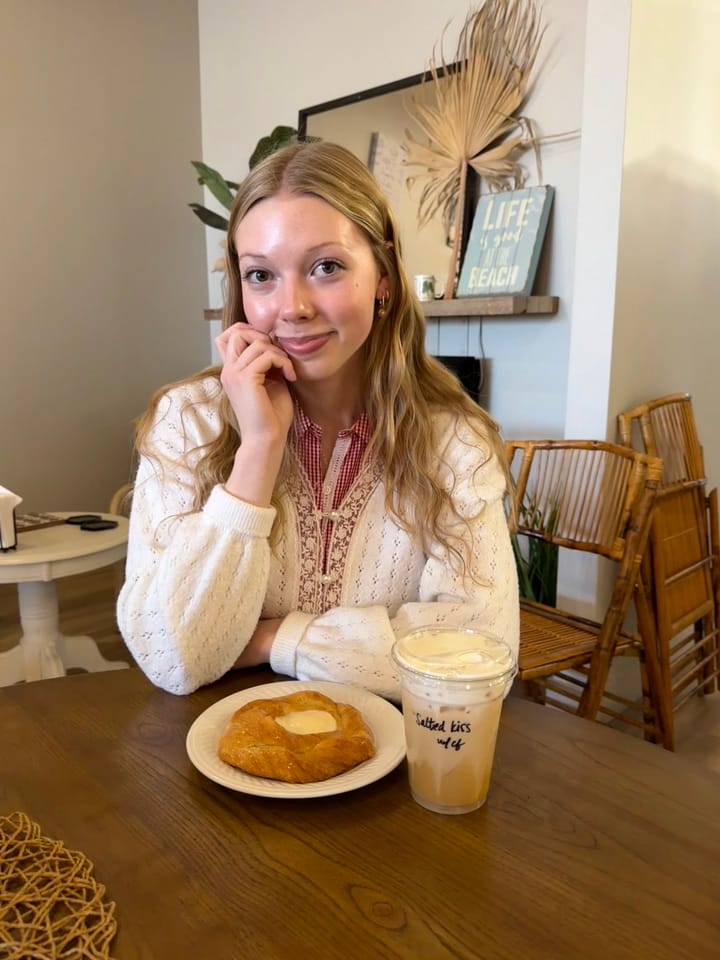Hamre hosts AI documentary, director Q&A

Artificial intelligence concerns for many on campus include primarily those of academic integrity and obtaining the right information needed for assignments and term papers.
The kickoff to this year’s Critical Inquiry and Citizenship Colloquium is changing that.
On Thursday, Sept. 11 in Hamre Hall, the Augustana Psychology Club hosted a showing of the documentary “Coded Bias,” followed by a Q&A session with its two-time Emmy-nominated director Shalini Kantayya.
The event drew 97 students, 25 faculty and staff, and various members of the community.
It served not only as entertainment but also to officially start the colloquium series “AI, Algorithms and the Common Good,” which seeks to spark conversations about AI and its continuing effects on society.
The documentary itself follows the speaker for this year’s main event, Joy Buolamwini, as she works to uncover the biases embedded in AI and how its uses can include application as a tool against civil liberties.
The film focuses primarily on the use of AI in facial recognition and its shortcomings, especially with marginalized people like women and people of color.
Buolamwini was inspired to start working with AI’s handling of and reaction to minorities when she realized that facial recognition technology would not be able to recognize her, a Black woman, as effectively as it can some others, like white men.
The film covers the inner workings and biases of AI as well as its use in law enforcement, including its 2020 testing in London by police and the complications that arose, from misidentifying individuals to Orwellian concerns — “the ‘Black Mirror’ episode no one expected,” as Shalini put it.
The artificial intelligence is even depicted as a talking, glowing red dot reminiscent of HAL from “2001: A Space Odyssey.”
Before making the documentary, Kantayya had no knowledge of the inner workings of AI. It was only when she was inspired by Buolamwini’s 2017 TED Talk on algorithmic bias that Katanyya uncovered a story that she felt had to be told.
This documentary was a learning experience for Kantayya, and it served the same purpose for students.
Freshman art and education major Axel Clark commented on his surprise at the contents of the documentary, including the discussion of Buolamwini’s 2019 testimony before Congress on the limitations of facial recognition technology.
“I had no idea that all of that was going on at the time and that people went to the Capitol to discuss legislation about this,” Clark said.
Similar to Kantayya and Clark, Sanjeev Shyam, vice president of the psychology club, did not have any initial thoughts on AI but had realizations upon viewing this documentary.
“I think that the big takeaway for me is you have to be careful of your AI usage and understand that AI can and does have biases,” Shyam said.
What Shyam spoke on is one of the key points of the film, but the issue is more complicated than just removing bias.
When asked by a student how AI would look if bias was taken out of the equation, Kantayya brought up the other main point of the film, that of AI’s surveillance use.
“If we had a perfect algorithm, we’d have perfect invasive surveillance technology,” Kantayya said. “It’s not about building the perfect algorithm; it’s about building a humane society.”
Shannon Proksch, assistant professor of psychology, highlighted the need to approach the AI issue in a way that might be about both solving an existing issue and using the technology to aid others.
“How can we be vigilant in the roles we play, not just to protect ourselves but ensuring that this kind of technology can do more benefit than harm to our communities?” Proksch said.
Throughout the semester, the events in the “AI, Algorithms and the Common Good” series will continue asking questions like Proksch’s in order to benefit critical thinking and conversation in the Augustana community.
“We know about those biases, and we know that we need to be in conversation with each other and listening to each other to check others’ biases,” said Stephen Minister, professor of philosophy.
He went on to praise the discussions that events like those in the can spark.
“By attending events like this, having the conversations in the hallway and the dorm room with other people — this is what changes our minds and shapes our perspectives, and that’s what will shape our future,” Minister said.



